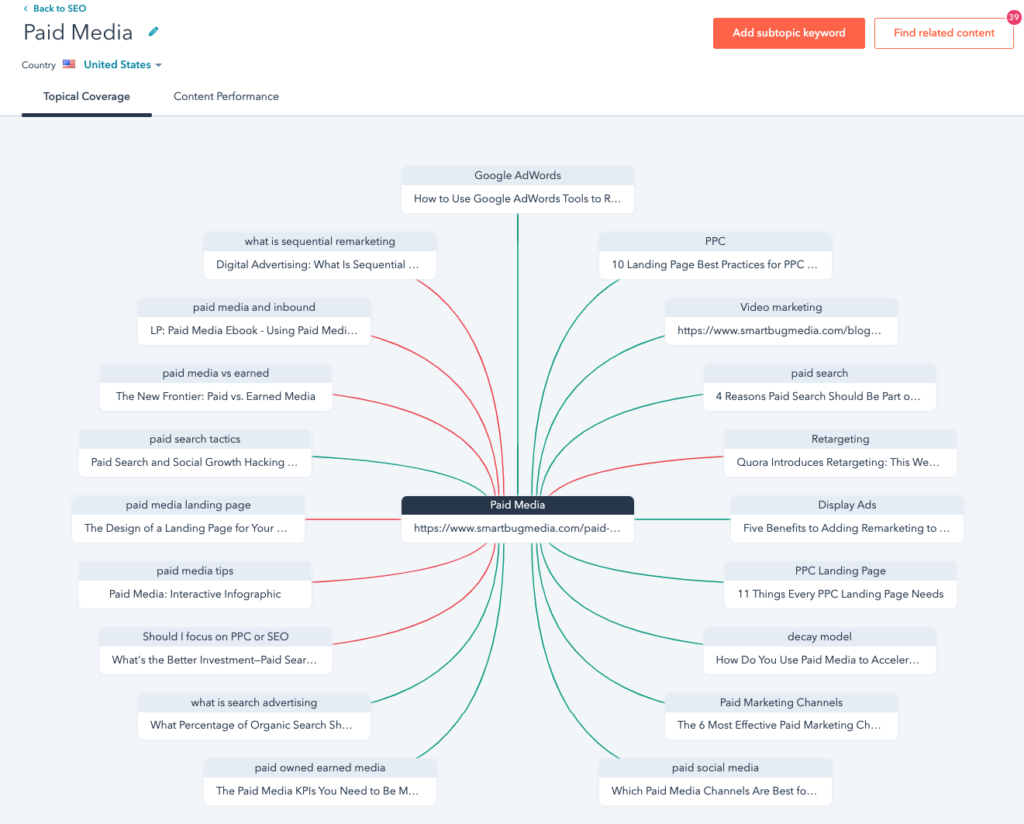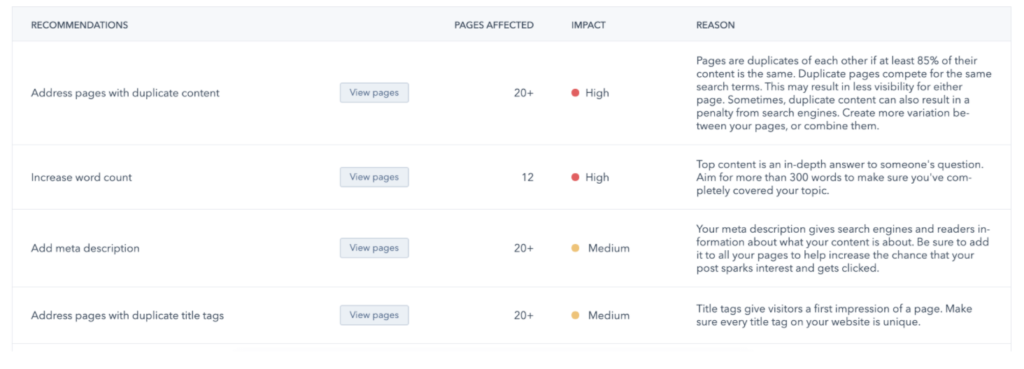.jpg?width=1180&name=04162021Migrating%20to%20HubSpot%20(1).jpg)
Migrating to HubSpot CMS | An SEO Walkthrough for New Users
April 23, 2021
By Paul Schmidt
New to HubSpot’s content management system (CMS)? This roadmap will guide you through its native search engine optimization (SEO) functionality and integrations.
Migrating to any new CMS or marketing automation system is a challenge. From publishing content to making sure your pages are well optimized, there's a lot you need to do to be successful.
If you're new to HubSpot CMS, here is an SEO roadmap that will guide you through the main native SEO functionality and integrations. This will help you understand if there are other tools you may still need to invest in as you move your site to HubSpot.
CMS Tools
Hosting
HubSpot hosts your site when you sign up for the CMS subscription. This is one less system you need to worry about when deciding where your actual website will live. When building your site on WordPress or another open-source CMS, you'll have to sign up with a hosting provider to serve up your site.
Content Delivery Network (CDN)
This is a must-have for global businesses that need their website to load quickly in any country and need to reduce risk from DDOS attacks. HubSpot's CDN (which uses Cloudflare technology) is built into the CMS with no added costs or setup needed.
Secure Sockets Layer (SSL) Certificate
This is much more common nowadays across hosting providers, but it is a need for SEO. Having your site on HTTPS is a must for ranking well across most verticals. HubSpot provides an SSL certificate as part of your subscription, and it renews automatically as long as your site stays on HubSpot.
Redirects
HubSpot's redirect tool allows you to bulk import your redirects via CSV or build them out one by one. This WYSIWYG tool is user-friendly for marketers that don't have experience updating .htaccess files or setting up redirects on the backend.
Sitemaps
HubSpot automatically generates a sitemap that you can submit to Google Search Console, so you don't need to build these manually or with any other plugins.
Monitoring & Security
HubSpot CMS has a monitoring and firewall system in place to identify threats and stop DDOS attacks from occurring. You'll need a third-party tool, like Sucuri or something similar, if you are running on WordPress or another CMS.
Ongoing Updates
HubSpot manages all of the updates on the CMS, so you don't need to update your CMS version or plugin versions manually like you do if you're on WordPress or another CMS. Constant updating is a big pain point for those who own content management for their organization.
Accelerated Mobile Pages (AMP)
HubSpot provides the ability to enable AMP on your blog which allows your users to find AMP versions of your blogs on mobile devices.
On-Page SEO Tools
Topic Planning
HubSpot content planning tools provide a visual schematic if you're pursuing a topic cluster approach for your SEO. This tool provides lightweight keyword research, internal linking, and analytics to understand how certain topics are helping you generate organic traffic, leads, and customers.
Here is an example of a paid media topic cluster with all of the sub-topic pages (and associated keywords) that are linked (or not linked) to the pillar page.

Here is documentation on using the topic planning features within HubSpot.
On-Page Recommendations
This functionality allows you to see specific recommendations at the URL level and the relative impact of fixing such issues. Here is an example:

There are also optimization recommendations built into the CMS page editor that ensure all of your on-page SEO bases are covered. Here is documentation for using individual optimization features within HubSpot.
SEO Tool & Analytics Integrations
Google Search Console
Because Google encrypts most organic keyword referral data, Google Search Console is one of the only sources where you can find what keywords are driving SEO traffic to your site. The Google Search Console integration is tied into your page publishing tools. For each page, the integration allows you to see:
- Top search queries
- Average position
- Total impressions
- Average click-through rate
- Clicks
This data is effective for your conversion rate optimization (CRO) efforts. When you are designing calls to action on the page, use the exact keywords data based on your top-ranking queries to help improve overall conversion rates.
Google Analytics
HubSpot’s standalone website analytics is not enough for all marketers. Most of our clients use Google Analytics in conjunction with HubSpot analytics to pull granular data by page, device, channel, and so on.
HubSpot's Google Analytics integration is useful to ensure all pages of your HubSpot-hosted content have proper tracking. At the moment, there aren't other uses for this integration, other than making sure that all of your pages have Google Analytics tracking code.
The Takeaway
Any migration or redesign project is going to take months of planning, implementation, and optimization. Though HubSpot has a higher sticker price from an ongoing hosting/subscription perspective than other CMS options, there are a number of embedded features and support that would replace the need for additional hosting, CDN, security, and ongoing IT requests for CMS updates.
Advanced SEO professionals may still want technical SEO, link building, and keyword research tools. But for most generalist marketers, HubSpot CMS has all of the foundational content publishing, integration, and analytics tools needed for a successful migration or redesign project.
*The original version of this article was featured in Search Engine Journal.

About the author
Paul Schmidt is a director of services strategy at SmartBug Media. He previously worked at HubSpot, helping develop inbound strategies for over 200 clients. His past clients include: Travelers Insurance, Unilever, and the SABIAN Cymbal Company. Paul studied percussion in Las Vegas and got his MBA in marketing in Boston Read more articles by Paul Schmidt.









